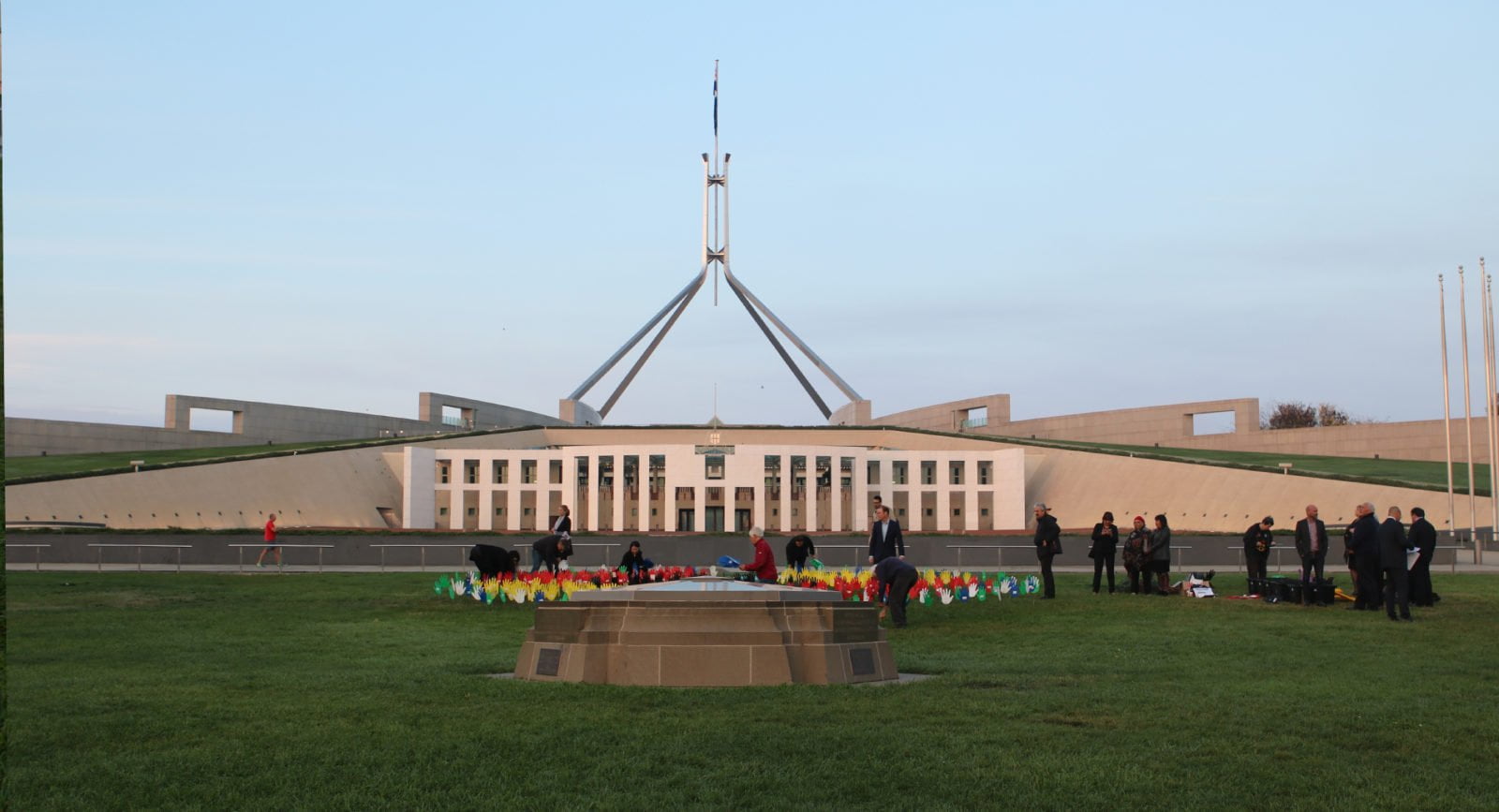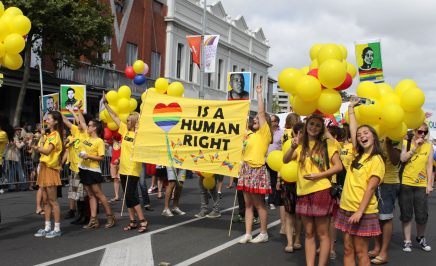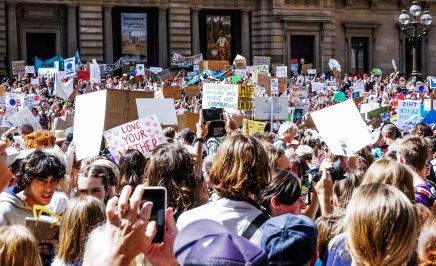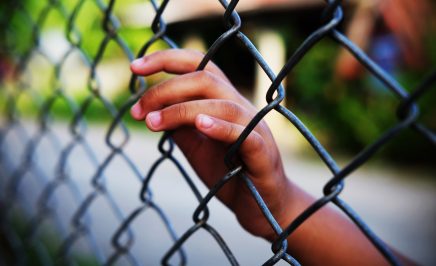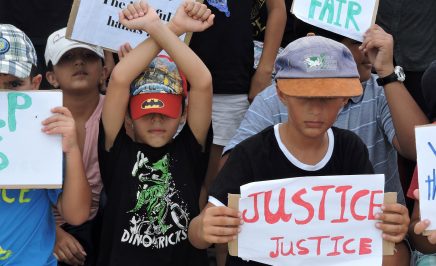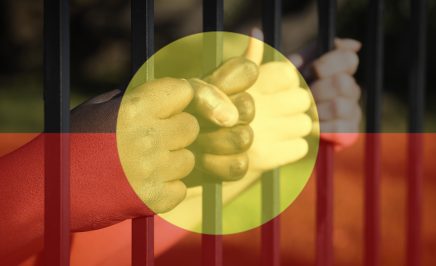The election campaign has come and gone. We’ve campaigned on the issues we’re passionate about, we’ve voted, and Australia has had its say. But, just because the election is over doesn’t mean we stop campaigning for the world we want to see.
Now is the time to hold the new government to account. Amnesty is calling on the new government to make human rights a priority, and we want you to join us.
Over the next 100 days, we’re asking you to make your voice heard.
1. Give First Nations kids a fair go
Aboriginal and Torres Strait Islander children are 24 times more likely to be locked up than non-Indigenous children. Another generation will be lost to failed government policies unless we address the underlying causes. The government needs to address this urgently by setting measurable targets to reduce Indigenous imprisonment rates, and by supporting Indigenous-led programs which help to put young people on the right path.
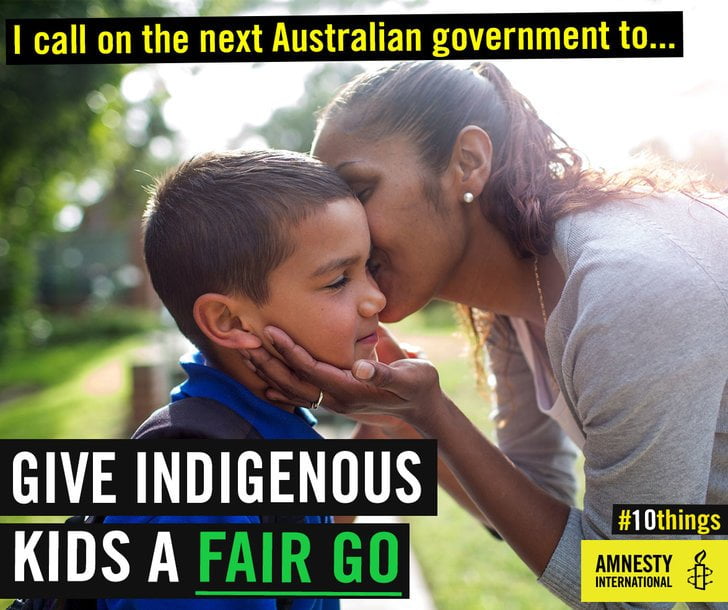
2. Work with First Nations leaders to invest in First Nations community services
First Nation people in Australia still face discrimination and disadvantage in health, education, income and access to essential services. We need a long-term commitment to Close the Gap, yet in recent years government funding for Indigenous programs has been severely cut. The government should commit to a plan for the funding of Indigenous community services to 2025, in partnership with Indigenous people themselves.
The Prime Minister should work closely with Indigenous leaders and representatives, including the National Congress of Australia’s First Peoples, to make sure Indigenous affairs policies are heading in the right direction.
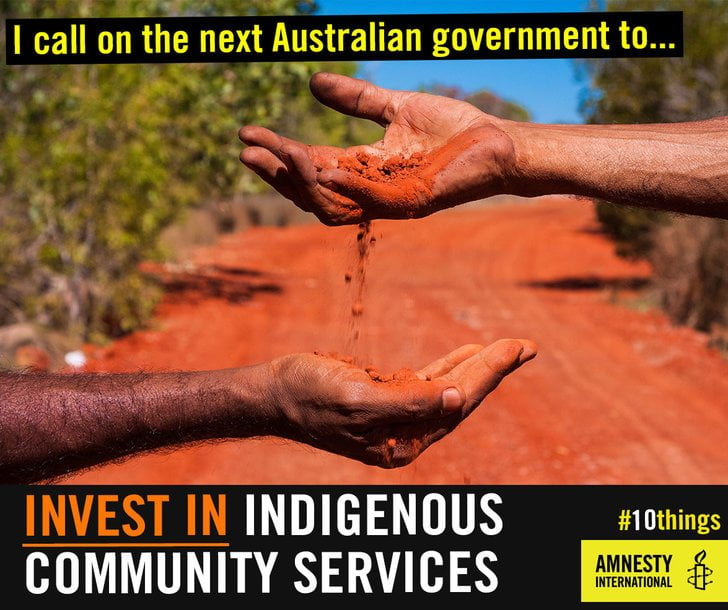
3. Do our bit to help people find refuge, and treat people seeking asylum with dignity
Millions of people around the world have been uprooted by fear and violence. All countries should pull their weight to help people in urgent need of assistance, and Australia can do it’s bit too. Australia’s policies of detaining and warehousing people seeking asylum offshore and pushing back boats at sea are inhumane. We can welcome asylum seekers and refugees into our communities in Australia and treat them with dignity.
Australia should end offshore processing, increase the annual refugee resettlement intake to at least 30,000 people per year and prioritise people with humanitarian needs in other migration streams (including skilled, student and family reunion visas).
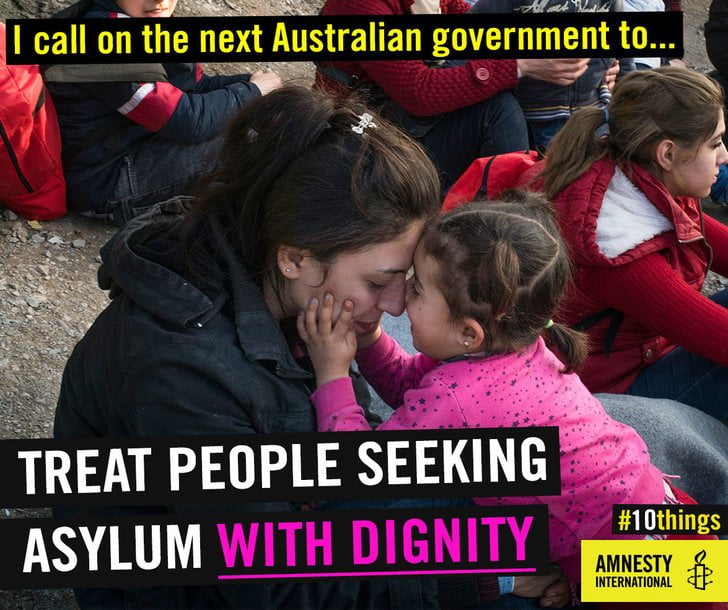
4. Let Australians marry the people that they love
Equal marriage rights are being legislated around the world, but Australia has fallen embarrassingly behind. No-one should be denied the right to marry the person they love just because of their gender or sexuality. The parliament has the power to make marriage equality a reality. There is no time to waste.
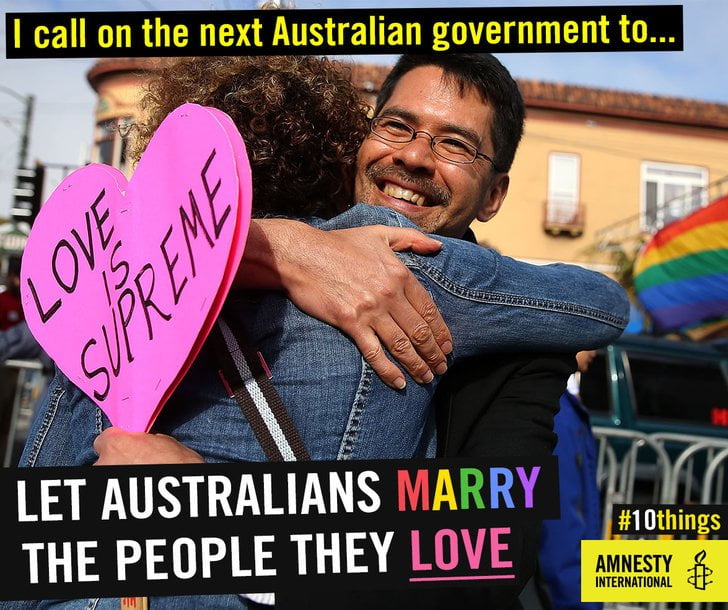
5. Ensure national security legislation respects fundamental freedoms
All governments need to balance national security with human rights imperatives, but the last Australian parliament tipped the balance too far in the wrong direction – eroding our right to privacy and the presumption of innocence. Australia should cease its mass surveillance data retention scheme; amend new citizenship revocation laws so they only apply to dual citizens convicted of a serious terrorist offence; and ensure proper safeguards are in place for children subject to control orders.
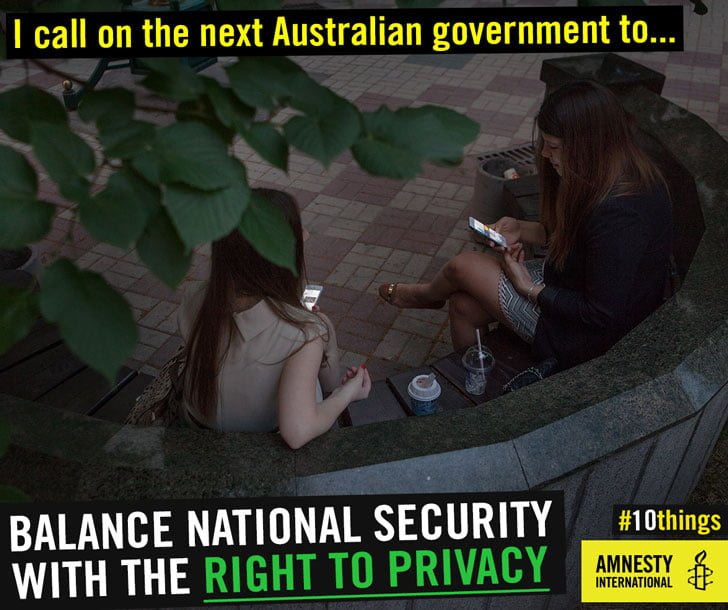
6. Take a stand against the death penalty
The use of state-sanctioned killing should be abolished for good. Australia has influence in our region and on the world stage and can help abolish the death penalty everywhere. The government should should quickly announce a foreign affairs strategy aimed at ending the death penalty worldwide, and campaign for ‘yes’ votes for the 2016 United Nations General Assembly’s death penalty moratorium resolution later in 2016.
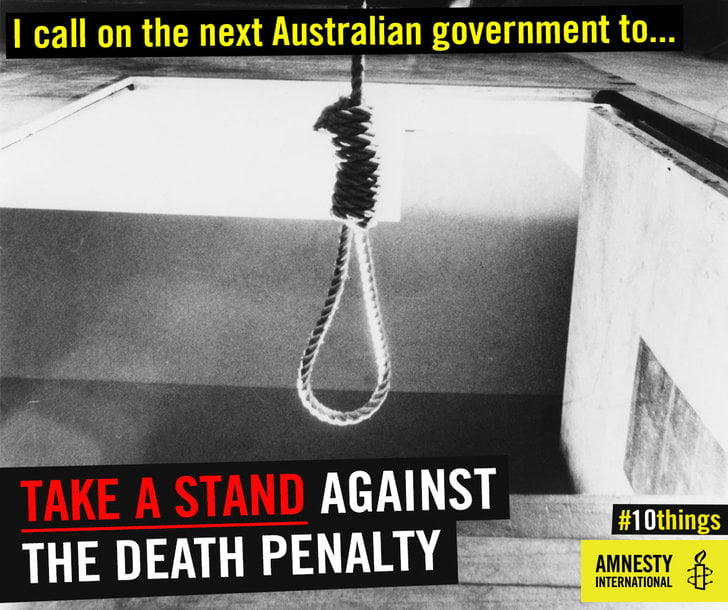
7. Make sure the Syrian people have a safe home
The people of Syria continue to face unimaginable suffering. Warring parties show little regard for their safety, and actively target them in some areas. The government must work together with other countries to ensure the Syrian people are protected and can access life saving humanitarian aid.
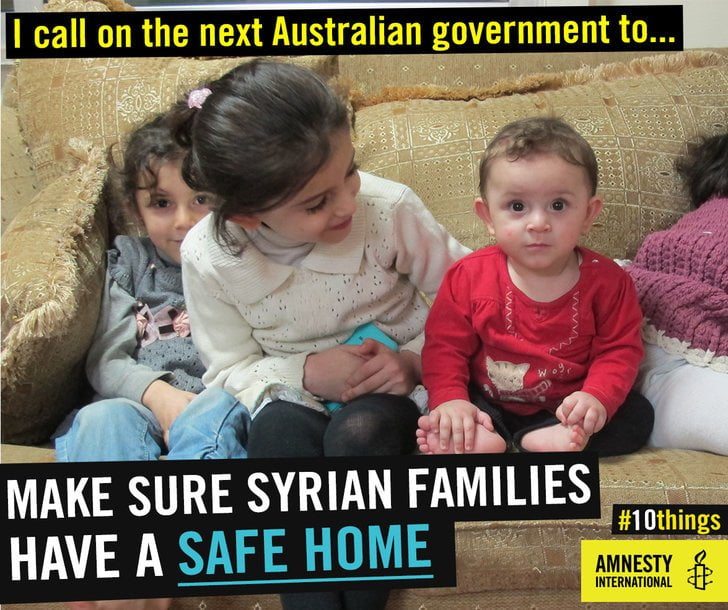
8. Support Australians with disabilities
One in five Australians has a disability, and people with disabilities experience some of the highest rates of discrimination and abuse in our community. The new government must ensure the Disability Discrimination Commissioner is fully funded and able to carry out their duties on a full time basis to make sure that the rights of people with disabilities are respected everywhere.
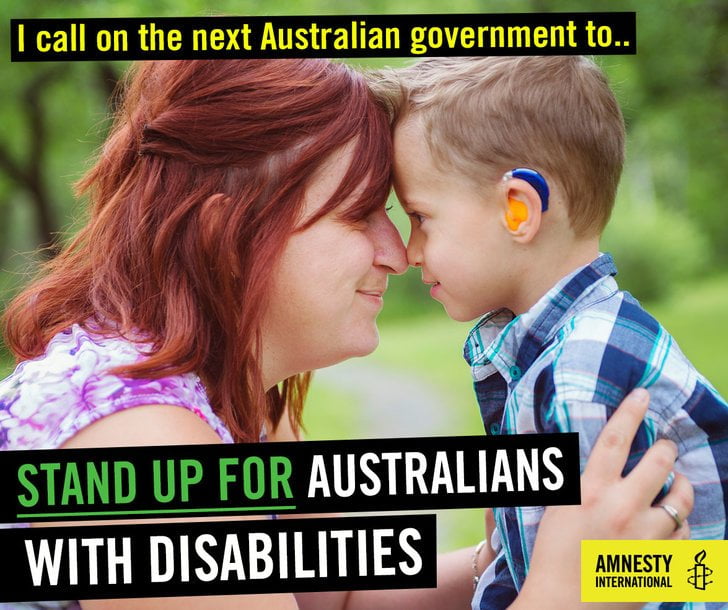
9. Work to end violence against women
One in three Australian women will experience violence in their lifetime, and Aboriginal and Torres Strait Islander women are at the epicentre of the crisis. We all know this is a major problem, but funding for crisis accommodation, legal assistance and other essential services continues to be cut. The next Australian government must increase funding for family violence services, especially specialised services for Aboriginal and Torres Strait Islander women.
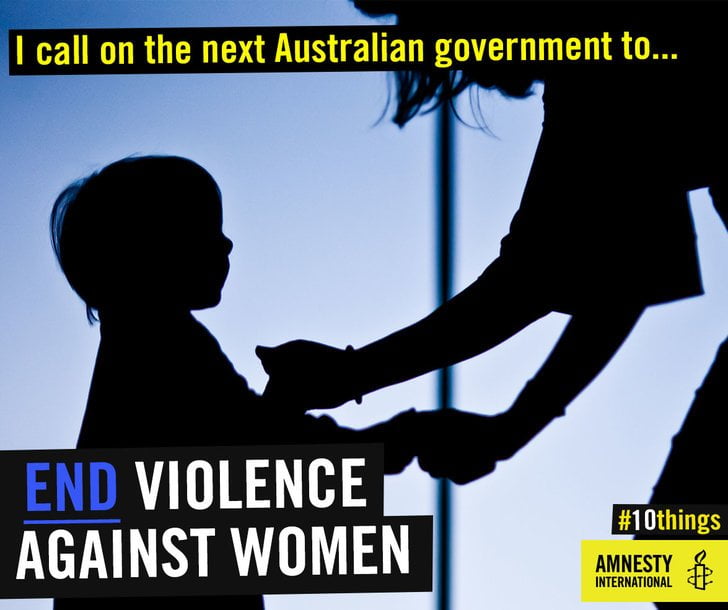
10. Increase the age of criminal responsibility to 12 years
The international standard age of criminal responsibility is 12 years old, but in Australia the age of responsibility used is 10. No 10-year-old child belongs in prison, and there is solid research to suggest that children this age have not yet developed the necessary skills and maturity for to be held criminally responsible. The government should bring Australia in line with international standards by raising the age of criminal responsibility to at least 12.
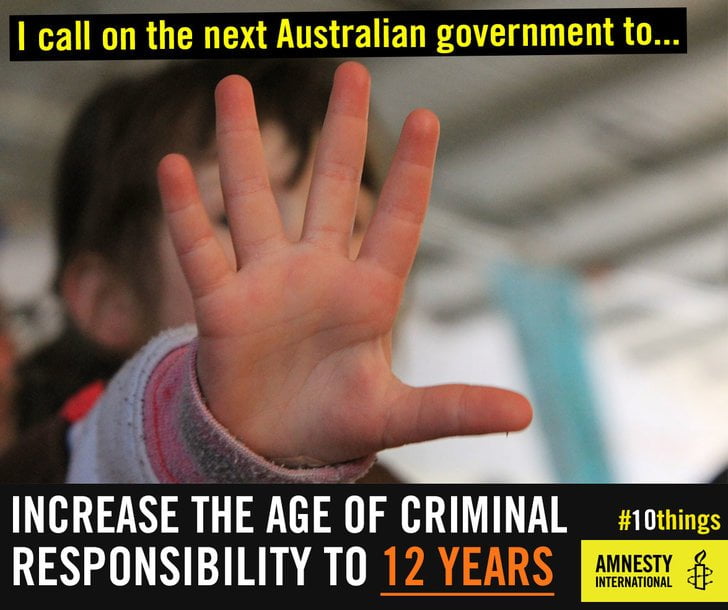
As a global movement of 10 million people, and 500,000 people in Australia, Amnesty International has the people power to build public support for a Human Rights Act. Learn more about what are human rights and our Human Rights Act campaign work.
